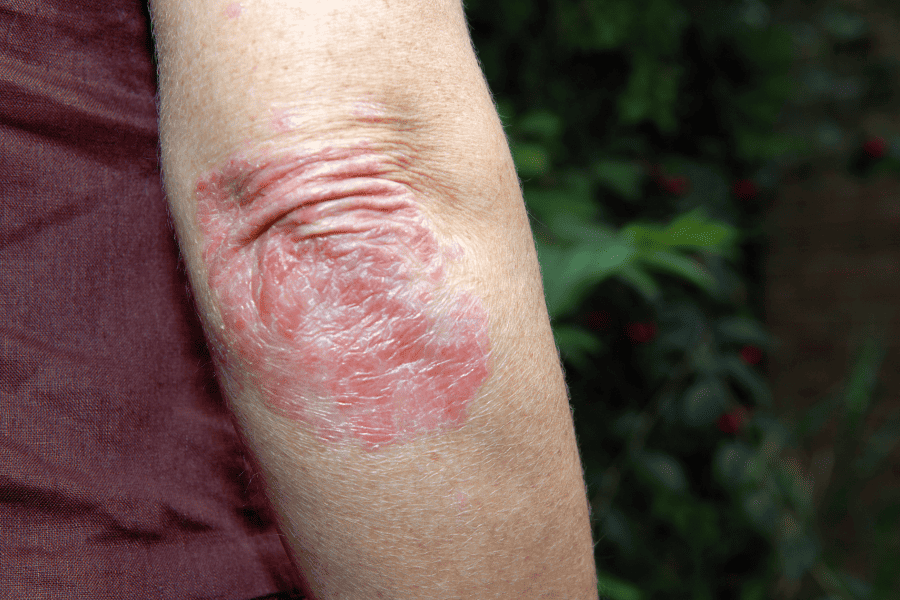Psoriasis
Home » Medical Dermatology » Psoriasis

What is psoriasis?
Psoriasis is a chronic inflammatory condition characterized by the presence of raised, red, and scaly patches on the skin. These patches, known as plaques, can vary in size and severity and are often accompanied by discomfort and self-consciousness. While psoriasis most commonly affects areas such as the elbows, knees, and scalp, it can actually appear anywhere on the body. The condition arises from an overactive immune system, causing skin cells to multiply rapidly, leading to the formation of the distinctive plaques. Living with psoriasis can be challenging, but with proper management and support, individuals can effectively control their symptoms and improve their quality of life.
How do you get psoriasis?
While experts do not know what exactly causes psoriasis, we do know that the immune system and genetics play major roles in its development. Usually, something triggers psoriasis to flare. The skin cells in people with psoriasis grow at an abnormally fast rate, which causes the buildup of psoriasis lesions. Psoriasis often develops between the ages of 15 and 35, but it can develop at any age. Psoriasis is not contagious and it is not something you can “catch” or that others can catch from you.
